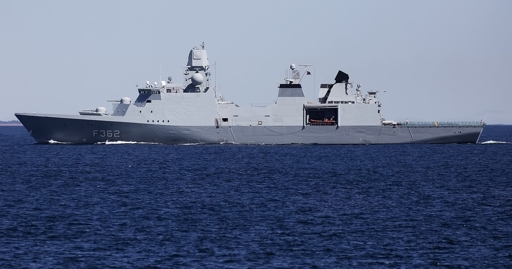Excerpts from the article:
“the Visegrád 24 media outlet reported that the Danish Navy vessel Y311 Søløven intercepted the Yi Peng 3, which has since been stopped for inspection.”
“The ship’s captain is reportedly a Russian citizen.”
“Data from the website MarineTraffic indicates that the vessel’s route and timing align with the locations of the cable damage, which occurred on November 17 and 18. The affected cables connect Sweden to Lithuania and Finland to Germany and play a critical role in regional internet traffic.”



My guess: if responsibility is proven, the owner of the ship will pay for fixing the cables (note: according to some sources, the ship has recently been transfered to a new owner). If they can credibly explain how it was an accident, they have a small chance of their insurer helping them pay.
Employees like the captain may indeed get convicted and jailed, and subsequently may get exchanged.
Typically, if a spy agency sends a ranked employee and he’s busted, they will try to exchange him. However, if a spy agency hires a rando and he’s busted, they typically leave him high and dry.
Did you read the article that I refered too?
A proven government related terrorist got exchanged for a bimbo falsy imprisoned NGO worker.
This was in Belgium. Maybe a more baltic attitude will have a more reasonable response.
I’d hope, but not count on, that being so ;)
I read it, thanks for linking. Ranked intelligence officers typically get exchanged, and sometimes the hostage they’re exchanged against is indeed a random person seized for the purpose of having someone.
That’s lamentable, as it’s nothing close to justice - the maximum sentence they get to serve is a few years (the time of negotiations). There’s no elegant solution. One half-solution would be banning the travel of civilians into a country which might be plotting to seize someone for exchanging. Most countries recognize that people sometimes have valid reasons to visit hostile countries (e.g. family members living there) and don’t practise it.
Meanwhile, hired crooks with no fixed relationship with the hiring government, they typically get abandoned by their clients.
If guilt is proven and the captain gets convicted, subsequent steps depend on whether he has a military rank in FSB or GRU. If yes, eventually we’ll hear of whom Russia is willing to give in return for his release. However, if he gets convicted and is a random civilian hired for dirty work, they won’t even wave him goodbye.
And of course, whether he gets convicted depends on whether evidence can be found.
However, making companies pay (seizing the ship and goods until arrangements are found) is a different story. It happens so rarely that I can’t predict the outcome.
Elegant answer, thank you
Well put. I’d wonder if the fact that a boat plus good costs a few 100k might be related to it’s irrelevancy.